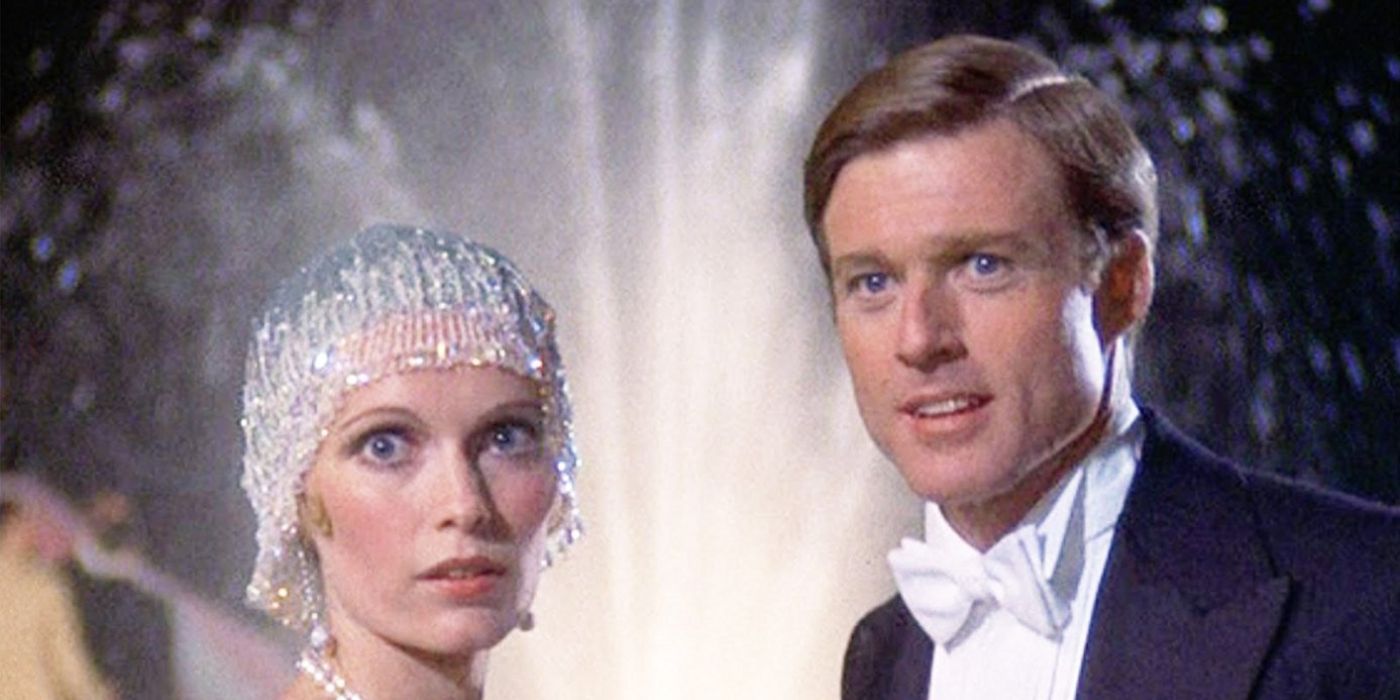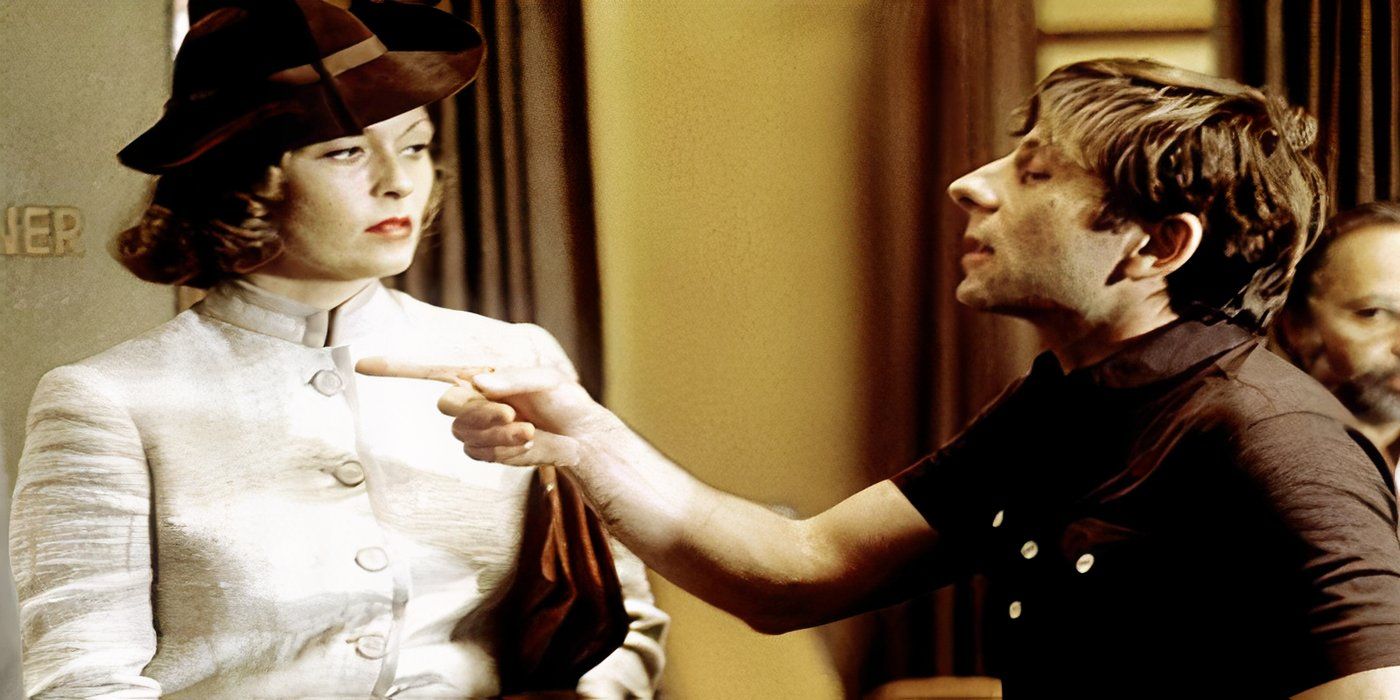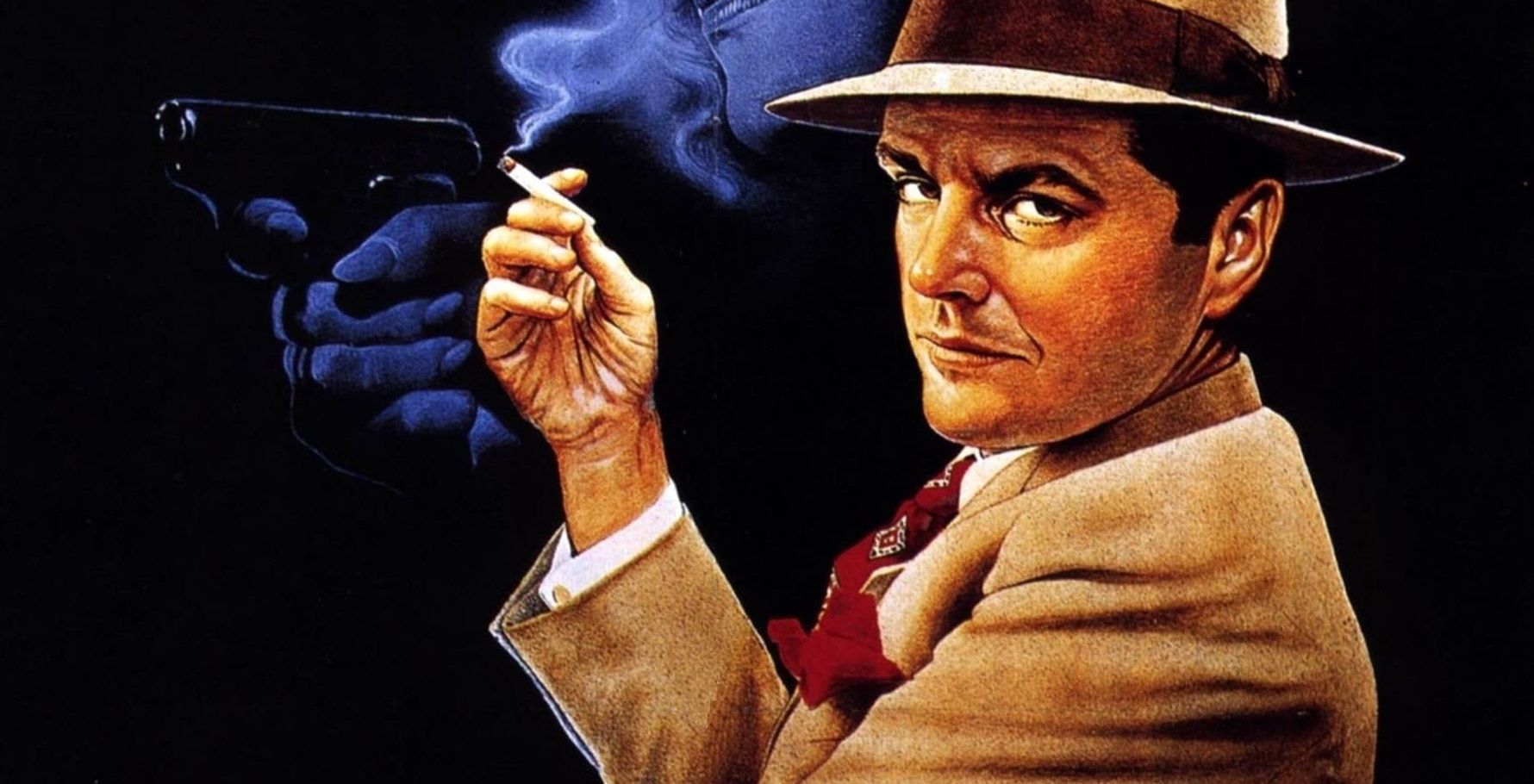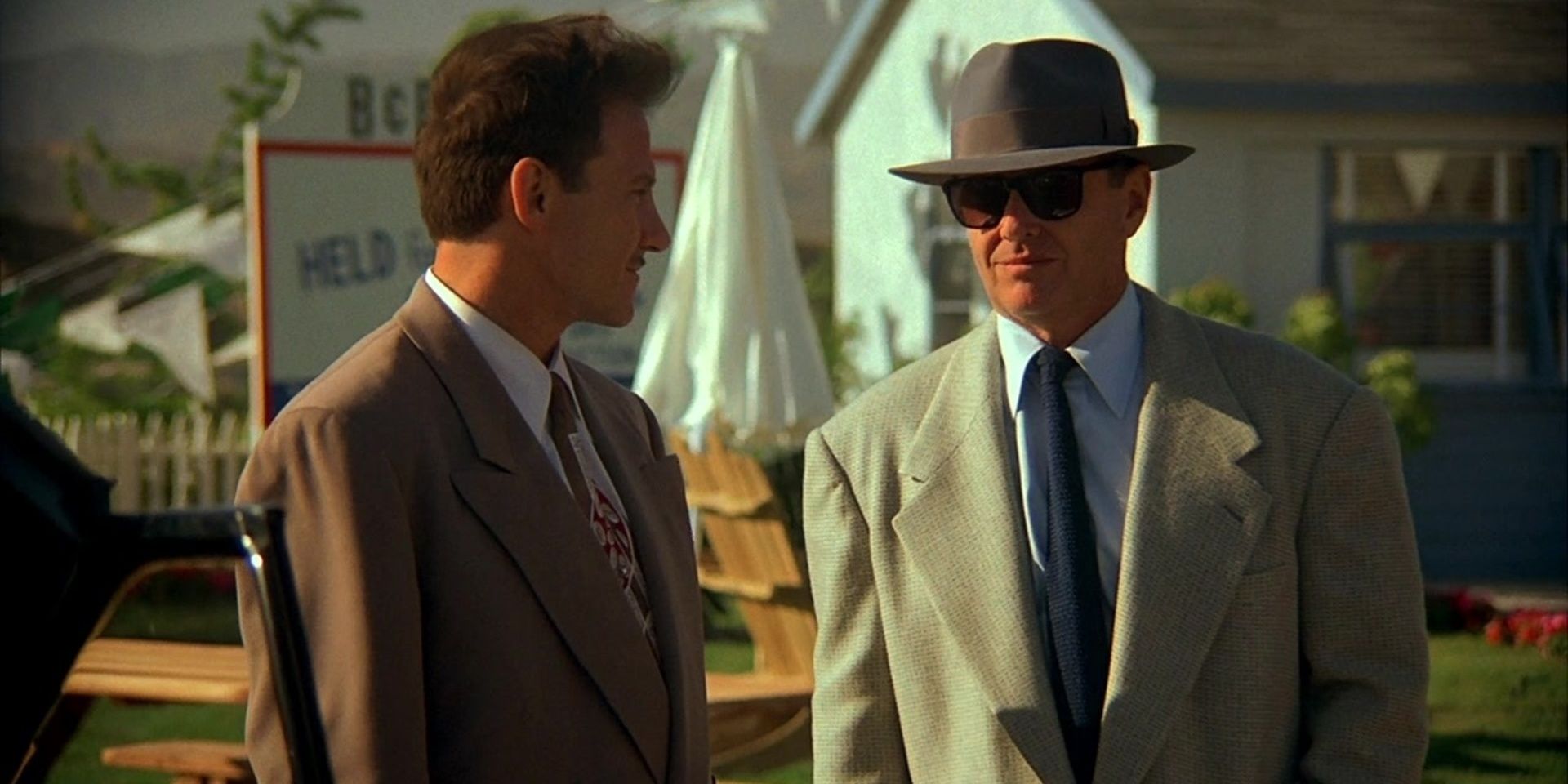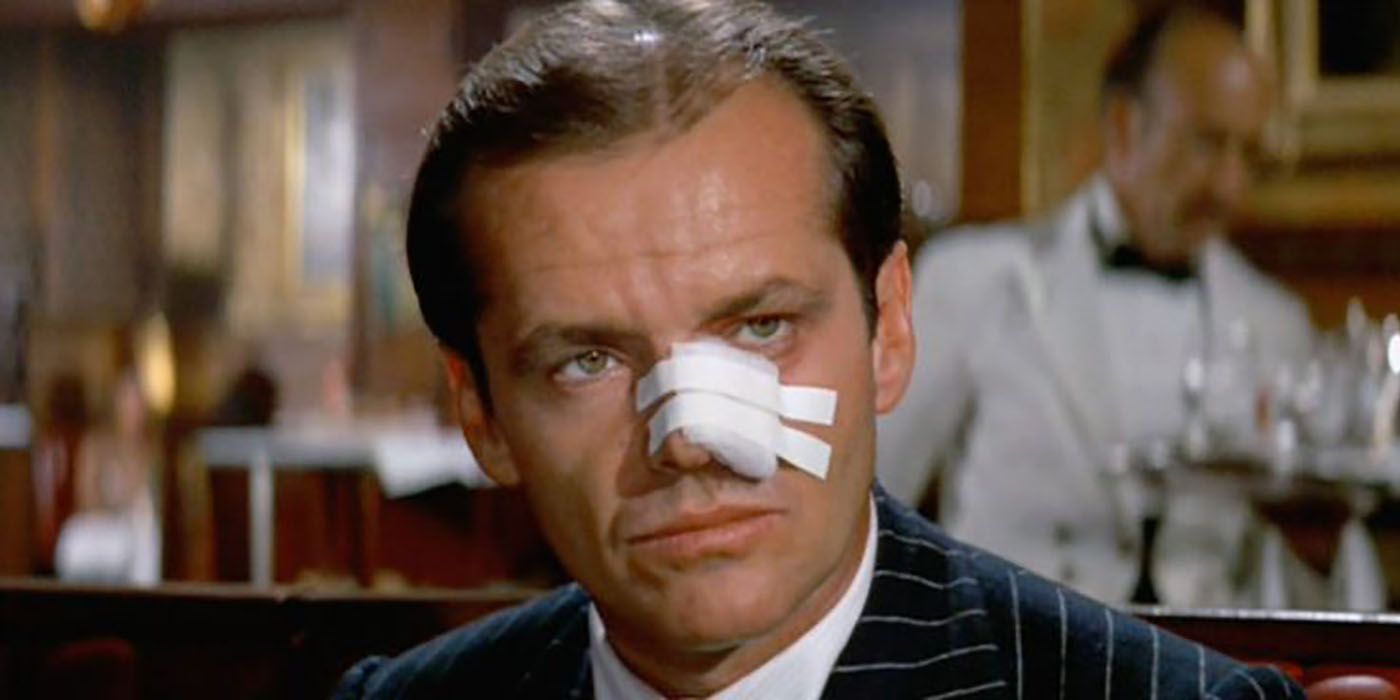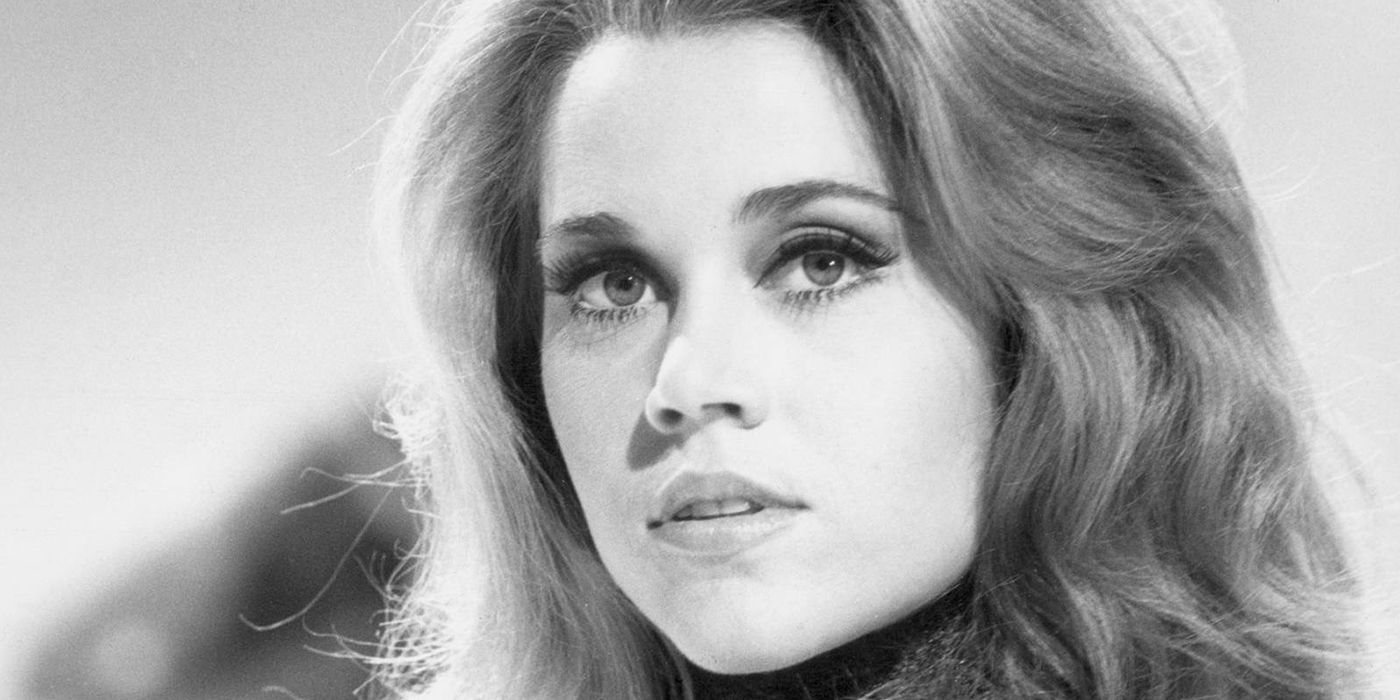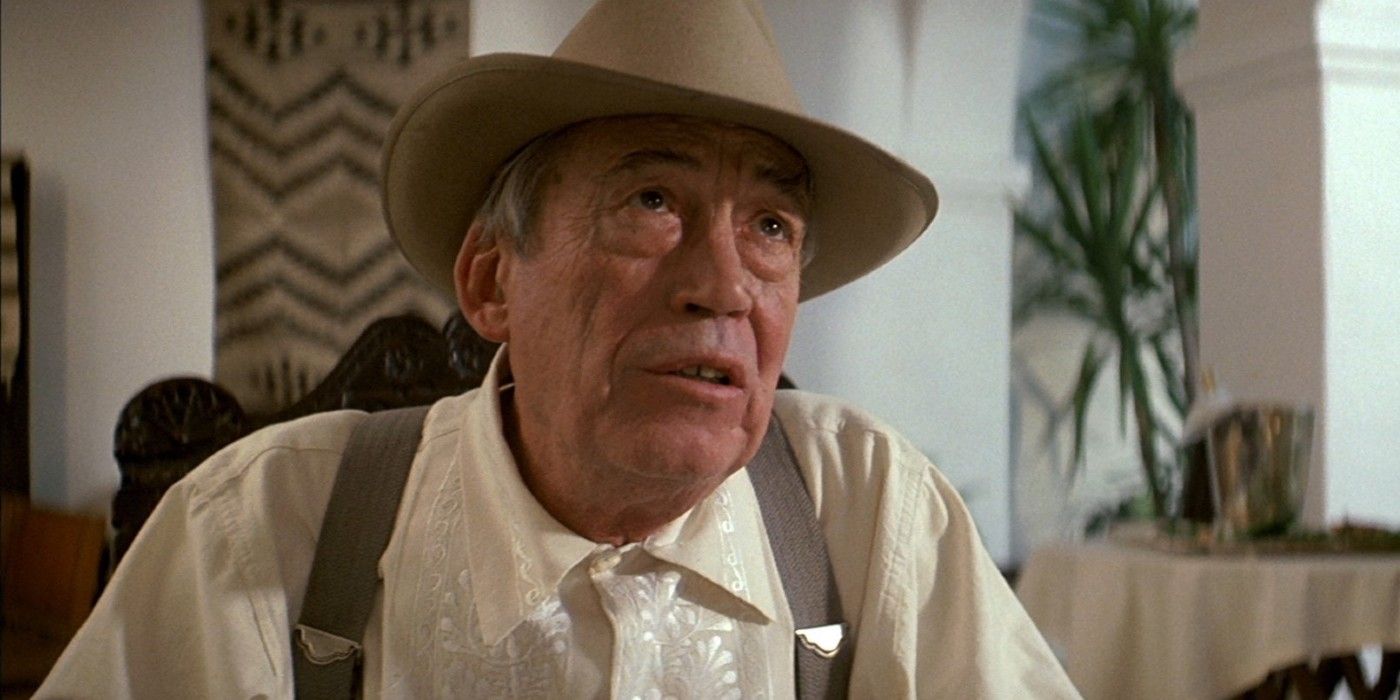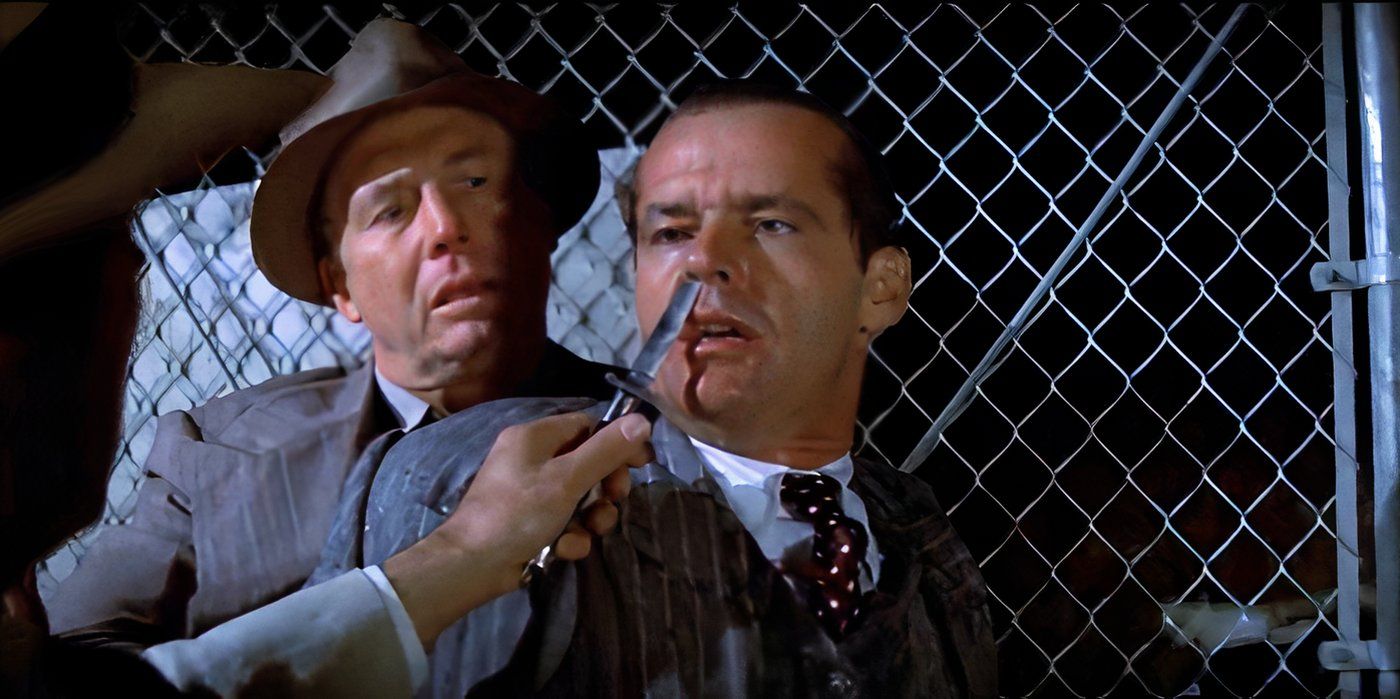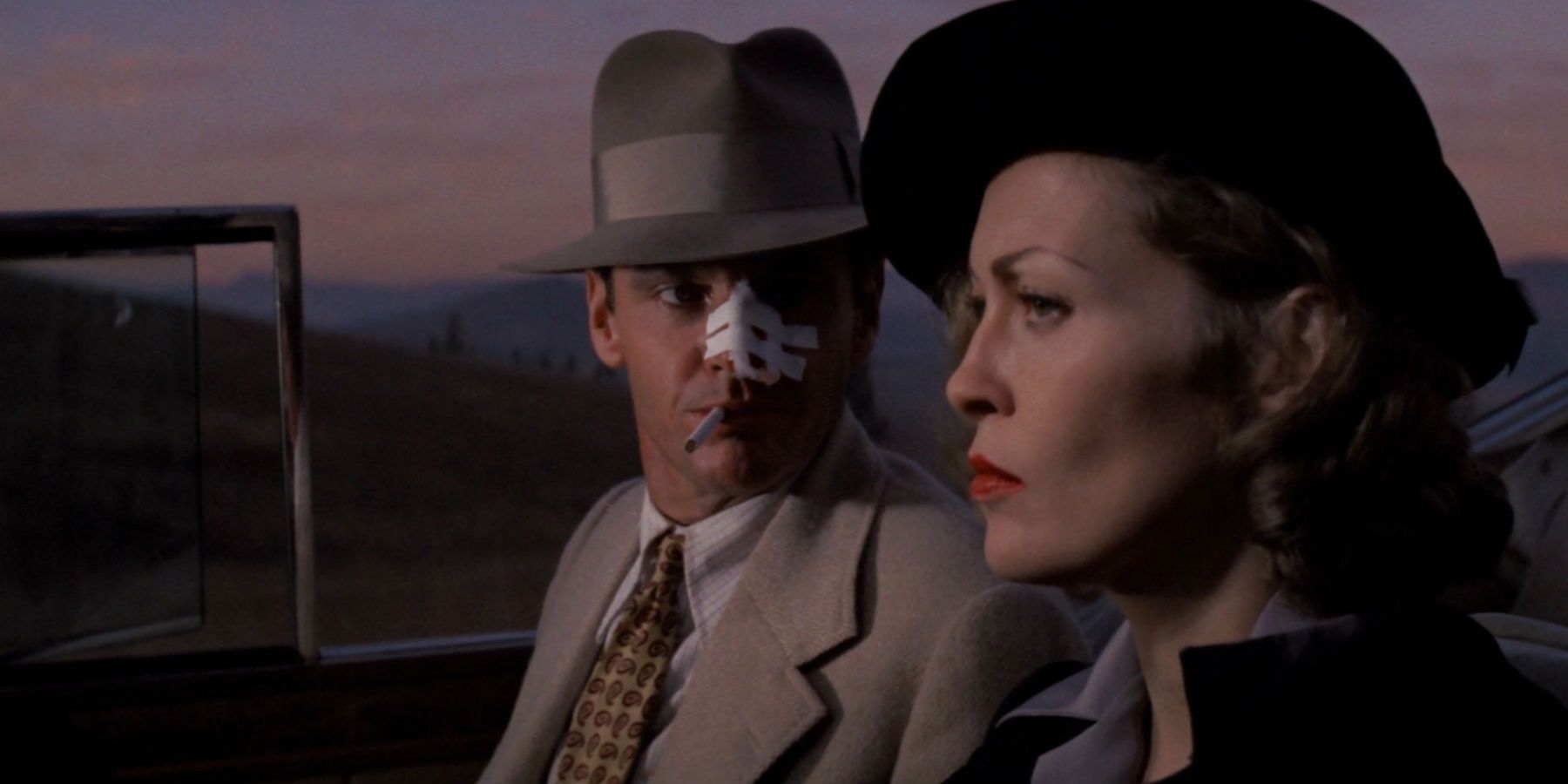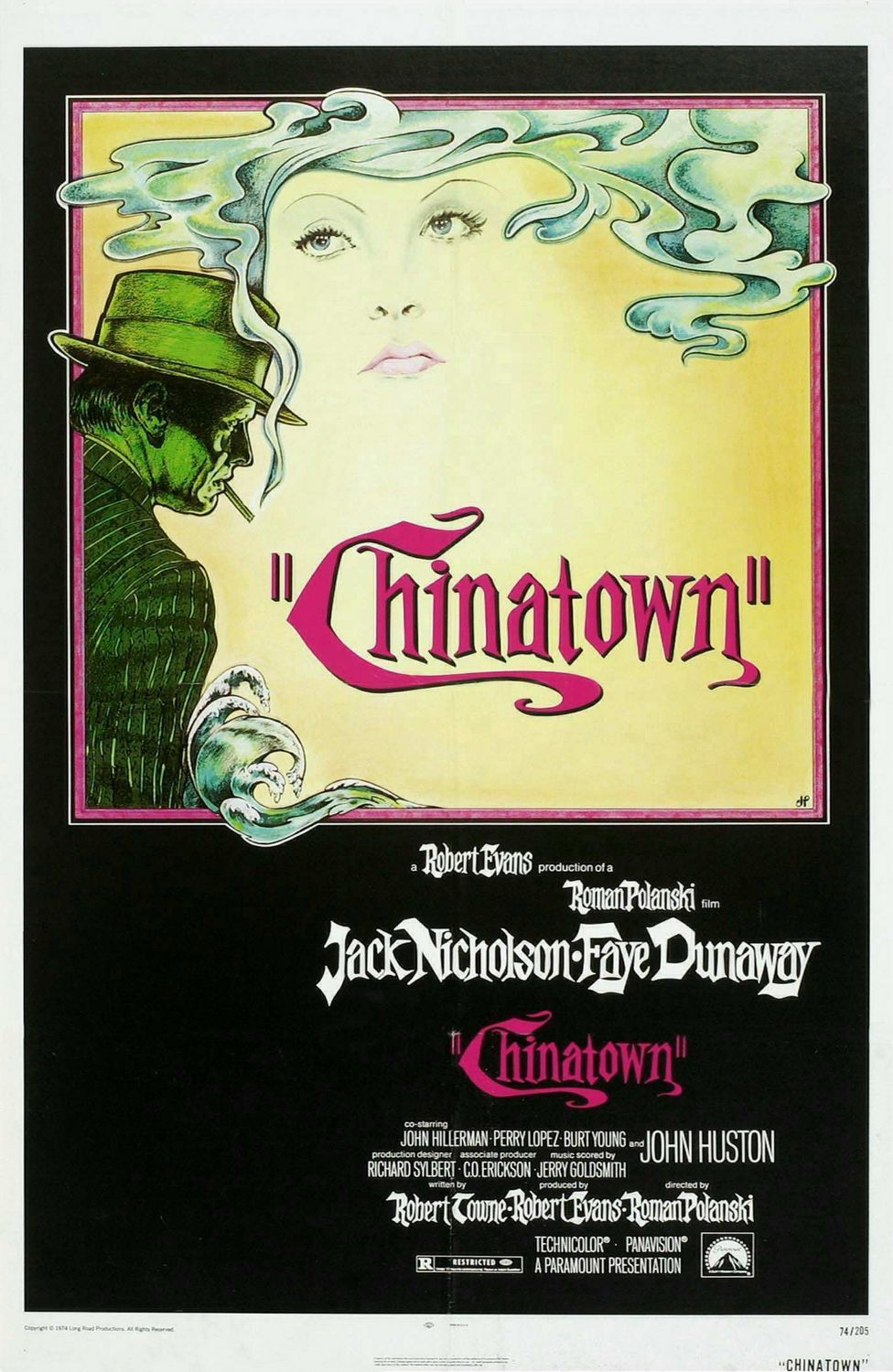Summary
- Chinatown’s script is revered as one of the best ever written, influencing generations of budding screenwriters.
- Robert Towne chose to write Chinatown over The Great Gatsby, leading to the creation of a cinematic classic.
- Faye Dunaway and Roman Polanski had a contentious relationship during Chinatown’s production, adding drama off-screen.
Half a century after the release of the neo-noir mystery Chinatown, interest in the film has not waned, and viewers have remained curious about all the unknown facts and details surrounding its production. With an extraordinary lead performance by Jack Nicholson, incredible direction from Roman Polanski, and one of the all-time great screenplays by Robert Towne, Chinatown has remained an enduring cinematic classic. While the film itself has been enjoyed by generations of viewers, there were plenty of aspects of Chinatown that the average audience member may not have known.
Chinatown was not only among the greatest film noirs of all time but has consistently ranked as one of the greatest films ever produced. As a multi-layered story of greed, corruption, and psychological intrigue, this was a film that kept on giving and revealed new facets of itself with each subsequent viewing. As a success with audiences, critics, and at the box office, Chinatown’s legacy has only become more acclaimed over the decades, and it will surely be enjoyed and rediscovered by new viewers for years to come.
10 The Script Has Been Used Has A Guide To Budding Screenwriters
Chinatown’s script has earned a reputation as one of the best ever-written
The Chinatown screenplay by Robert Towne has built up a reputation as among the finest scripts ever produced and has even acted as a guide for generations of would-be screenwriters. This was because the noted author Syd Field used Chinatown as a major example in his book Screenplay: The Foundations of Screenwriting. This non-fiction book was written as a step-by-step guide for budding writers looking for examples of how to take an idea from its initial concept and turn it into a finished script.
Screenplay has been used to film colleges and universities around the world and has often been referred to as the bible of the screenwriting craft (via The New York Times.) Field used Chinatown as his primary example of the sixth chapter, “Setting Up a Story” (via Field), where he outlined the importance of getting a reader, or viewer, hooked within the first pages of the screenplay. Field outlined how the movie’s ending was baked into Chinatown’s opening minutes and that the script’s foreshadowing of corrupt officials was a lesson in effective writing that all aspiring filmmakers should take note of.
9 Robert Towne Chose To Write Chinatown Over The Great Gatsby
Chinatown was written for a much smaller fee
The all-time film classic that was Chinatown would potentially never have happened at all if its screenwriter, Robert Towne, had accepted his first, more lucrative, offer to write the script of an adaptation of The Great Gatsby (via Deadline.) Towne was offered $175,000 for the project but felt there was no way he could do any better than F. Scott Fitzgerald’s novel and instead asked for $25,000 to write his own original story. Towne then got to work on his story, which would go on to be nominated for 11 Oscars at the Academy Awards.
The money for Chinatown’s script was put up by producer Robert Evans, who had been hoping for a Jack Nicholson project to be his first solo production credit. Although a film noir-style project was not the film he had imagined producing, he struck gold with this deal, as in the past 50 years, Chinatown has not lost any of its timeless appeal. As a deeply layered film that got to the very heart of power and corruption, Chinatown stood as a film far superior to the 1974 adaptation of The Great Gatsby, released around the same time.
8 Faye Dunaway And Roman Polanski Had A Contentious Relationship
Chinatown’s production had plenty of heated moments
The controversial Chinatown director Roman Polanski and the Evelyn Cross-Mulwray actress Faye Dunaway famously did not get along during the production of the film (via Far Out.) Although Dunaway has earned a reputation for often being difficult to work with, she was terrorized by Polanski onset and had genuine grievances The pair’s feud reached boiling point when Polanski rejected Dunaway’s request to use the bathroom during re-takes, and she allegedly threw a cup of urine in Polanski’s face as a retaliation.
Polanski described Dunaway as displaying “certifiable proof of insanity,” and they butted heads when he plucked a hair straight from her head that he thought was messing up the perfect shot. Dunaway said that Polanski showcased “incessant cruelty,” and she struggled to understand why he took every opportunity to humiliate her. Following Chinatown, Dunaway and Polanski never worked together again, and within a few years, Polanski was be arrested (via Guardian) for unlawful sex with a minor and fled to Europe.
7 Chinatown Was Inspired By Real Events
Chinatown took influence from the life of William Mulholland
The complex and convoluted crime mystery depicted in Chinatown had all the makings of a classic film noir story but was actually inspired by real events (via The Daily Beast.) The corruption at the heart of Chinatown, especially the character of Hollis Mulwray, was loosely based on the Irish immigrant William Mulholland. As superintendent and chief engineer of the Los Angeles Department of Water and Power, Mulholland was a significant figure in L.A. during the early 1900s.
Mulholland’s life and Mulwray’s character mirrored each other in significant ways. The dam break discussed early in Chinatown brought to mind the real St. Francis Dam disaster of March 12, 1928. This disaster caused the deaths of hundreds of people and effectively ended Mulholland’s career. Chinatown’s basis in truth contributed to the film’s enduring appeal, as cinephiles who have remained fascinated by the movie over the past 50 years have so many different facets of its existence to analyze, uncover, and delve into.
6 Chinatown Was Almost A Trilogy
Chinatown almost had a second sequel
Most Chinatown viewers would be aware that a Jack Nicholson-directed sequel was produced in 1990, in which Nicholson reprised his role as Jake Gittes for a script once again written by Robert Towne. The Two Jakes was a fascinating prospect that sadly did not live up to the legacy of the original and was a critical and commercial failure, taking in just $10 million (via Box Office Mojo) against its $25 million budget. However, Towne had planned for a third film to follow The Two Jakes, titled Gittes vs.Gittes, but the failure of the sequel meant these plans were scrapped.
In a 2007 interview with MTV News, Nicholson discussed the canceled third film. He said they “always planned on making three films” that were to be tied to “elemental things.” Nicholson described Chinatown as being “water,” The Two Jakes as “fire and energy,” and Gittes vs. Gittes as about “divorce and relating to air.” Nicholson further stated that Gittes vs. Gittes going to be set in “1968 when no-fault divorce went into effect in California” but did not go into specifics beyond that.
5 Jack Nicholson Was The First Choice For Gittes
Chinatown was written with Nicholson in mind
The long-lasting appeal of Chinatown was down to its fine directing and incredible script, but one essential factor in its enduring success was Jack Nicholson’s extraordinary performance as Jake Gittes. Chinatown was released when Nicholson was at the absolute top of his game and was one of the roles that contributed to his legacy as among the greatest actors who ever lived. It made sense that Nicholson was so great in the role of Gittes because the screenwriter Robert Towne wrote the movie with him in mind to star.
According to an interview with Sam Wasson in The Daily Beast discussing his book on Chinatown, titled The Big Goodbye, Towne channeled the most extreme aspects of Nicholson’s self-admiring personality into the part of Gittes. Towne had a knack for writing about Nicholson’s unique acting style, which helped turn Gittes into one of the most iconic detectives in the film noir genre. As an extraordinary performance in a fantastic film, Chinatown would not have been the same without Nicholson as the star.
4 Evelyn Mulwray Was Written With Jane Fonda In Mind
Chinatown’s Evelyn Mulwray almost went to a different star
Although the role of Evelyn Mulray eventually went to Faye Dunaway, who gave an extraordinarily committed performance, it was actually Jane Fond who the part was reportedly initially written for (via Indiewire.) However, these plans were derailed when producer Robert Evans decided the role was perfect for his wife, Love Story star Ali MacGraw. But then, these plans were once again put in peril when Evans and MacGraw got divorced, and Roman Polanski came on board to direct and now had a say in the casting choices.
With several actresses then under consideration, including Julie Christie and the eventual star Dunaway, it seemed Fonda became a less likely candidate. Fonda herself has commented on the issue (via RTE), saying that Bette Milder’s play I’ll Eat You Last: A Chat With Sue Mengers claimed she had been offered the part in Chinatown, which she said never happened. “I’m mad about it with Roman Polanski, but he never really offered me the part.,” Fonda said.
3 John Huston Could Not Get His Lines Right
Chinatown’s antagonist had some pronunciation troubles
The legendary film director John Huston was not known primarily for his work as an actor but gave perhaps his greatest performance as the villainous Noah Cross in Chinatown. Although he appeared in just three scenes, Cross was one of cinema’s most iconic antagonists, whose wealth and ruthless nature led to an elaborate plot categorized by corruption and greed. However, many viewers may not be aware of just how difficult it was to get Huston’s scenes filmed as he struggled with the pronunciation of Jack Nicholson’s character Jake Gittes’s surname (via Slant Magazine.)
Additionally, it should have been Nicholson who had trouble finding the right words, as, in his scenes with Huston, he was acting opposite his new girlfriend’s father, as Nicholson had a relationship with Anjelica Huston from 1973 to 1990. Despite being consistently corrected, Huston repeatedly referred to Gittes as “Gitts” to the point that Roman Polanski eventually decided to make it part of his character. Luckily, it was small details like these that actually ended up contributing to Cross’s character rather than taking away from it.
2 The Nose Cutting Scene Was Difficult To Film
Chinatown had a real weapon on set
The nose-cutting scene was one of the most iconic moments in Chinatown and even featured a brief appearance from the film’s director, Roman Polanski, as a knife-wielding gangster. The cut marked Jake Gittes for the rest of the film and acted as his warning to stop being so “nosey” and stop investigating the ever-deepening mystery of the L.A. water scandal. However, what viewers may not know was that the scene was notoriously difficult to film and featured one aspect that makes Nicholson’s characters’ palpable fear all the more understandable.
According to Far Out, Polanski opted to use a real knife during the scene as he threatened to slit Nicholson’s nose open. This switchblade would fold in on itself if flicked to the right; however, if it had been done the other way around, then Nicholson would have truly been cut. Luckily, despite the dangerous weapon really being brandished at Nicholson, the scene was achieved without actually scarring his nose, and Nicholson continued scarless as one of Hollywood’s most sought-after leading men throughout the 1970s.
1 Faye Dunaway Told Nicholson To Actually Slap Her
Faye Dunaway’s incredible performance as Evelyn Cross-Mulwray can stand alongside Jack Nicholson’s as one of the greatest aspects of Chinatown. Despite Dunaway’s onset difficulties with director Roman Polanski, she still managed to deliver one of the defining performances of her entire career. This was categorized by a stern commitment to the role of Evelyn and even a willingness to push herself far past the boundaries that many performers would be comfortable with to achieve the desired level of realism in a scene.
This tendency was best encapsulated by Dunaway’s instructions to Nicholson to actually slap her during a tense scene where the staged slaps were not looking believable enough (via Hollywood Reporter.) Funaway stated, “I finally said, Jack, you are just gonna have to hit me” and eventually Nicholson relented, and “he really did.” It was through such an intense commitment to her performances that Dunaway went on to win the Academy Award for Best Actress just two years later for her part in the spectacular satire Network.
Sources: The New York Times, Screenwriting by Syd Field, Deadline, Far Out, Guardian, The Daily Beast, Box Office Mojo, MTV News, The Daily Beast, Indiewire, RTE, Slant Magazine, Far Out, Hollywood Reporter


